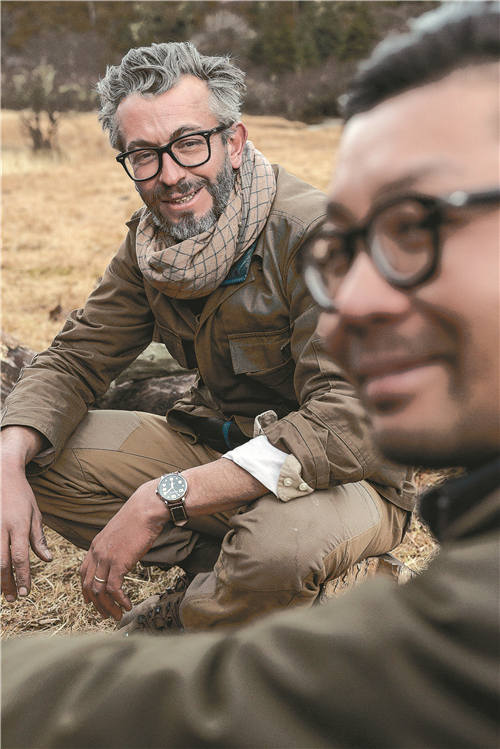

He was mesmerized by places like Guizhou and Yunnan provinces, with their ethnic Yao and Dong elements and large mountains, which were well-matched to his interest in camping-a passion he has had since childhood.
"My father took me to the mountains back in France during weekends and holidays," De Slizewicz says. "I loved hiking and have picked up outdoor survival skills, such as how to make a fire."
What makes those mountainous areas special to him is the people who live there.
"I met people in the mountains, herding their yaks. That makes the mountain feel alive," he says.
After graduation, De Slizewicz made his way to Yunnan and worked as a photographer for a Chinese media outlet, while moonlighting at several foreign magazines.
His job was mainly to introduce ethnic cultures and customs in Yunnan and Sichuan to the outside world.
In 2005, De Slizewicz settled on the shores of Lugu Lake, which sits on the border of Yunnan and Sichuan, where he spent two years managing a guesthouse and writing a book introducing local ethnic groups. Since 2010, he has lived in Shangri-La, where he has been studying past explorers and the ancient Tea Horse Road that connected Sichuan and Yunnan to Xizang.
In doing so, he was inspired by the likes of Joseph Rock, an Austrian-American who explored Shangri-La in the 1920s and '30s and published the stories of his travels in National Geographic magazine.
De Slizewicz was intrigued by depictions of how Rock led a team of more than 20 mules and 17 followers up hill and down dale, while enjoying bonfires and gourmet food.
"It's just fascinating how good-quality tea leaves were sent from Sichuan and Yunnan along the ancient route that has a history of more than 2,000 years to Xizang, where tea was needed to complement the deficiency of the local food structure," he says.
That was why he set up Caravane Liotard, a boutique hotel and hiking company in Shangri-La.
"I'd like to offer camping experiences that trace the historical route," he says.
When he explored the lay of the land in Shangri-La with his tent and wagons, he was fascinated by its pristine and wild beauty.
Such a trip, arranged by Caravane Liotard, usually involves a retinue of around 40 horses carrying tons of goods, including camping equipment and food supplies.
For some big events, a total of 72 horses are required.
De Slizewicz takes his guests across grasslands, up high mountains, past lakes and into forests, all off the beaten track, where they can get full measure of life in the outdoors at 4 kilometers above sea level. Evenings are spent chatting with local Tibetans around the bonfire, sipping wine and indulging in hotpot and some examples of French cuisine.
"It's tough on the trek, but the stunning views and adventure more than compensate for the effort," says De Slizewicz.